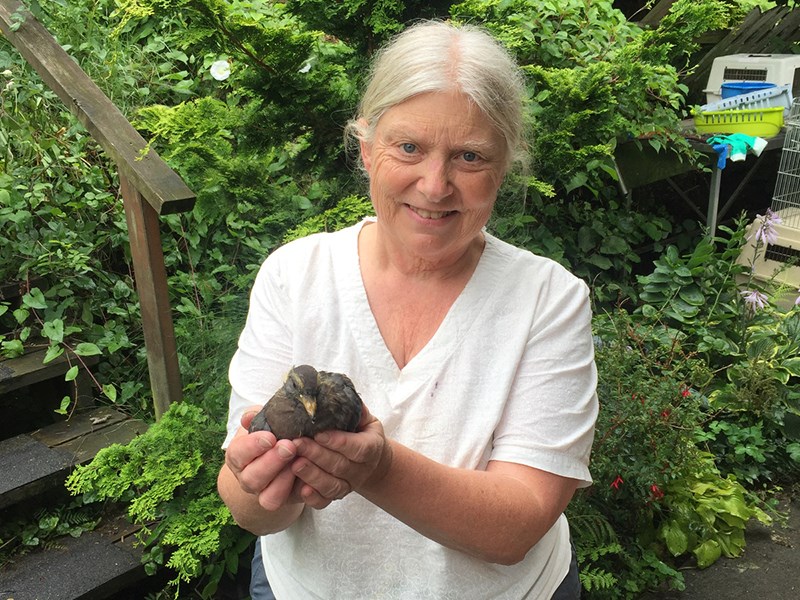Good news stories of rescued and rehabilitated birds and critters can be seen in the pages of the Peak Midweek on a regular basis. Many orphaned, injured or sick creatures found in the Powell River area, on Texada Island and even northern Vancouver Island are brought to Merrilee Prior, presidentof Powell River Orphaned Wildlife Society (PROWLS).
Also known as “the bird lady,” Prior cares for many of these animals at her home. What isn’t as well-known is the major role BC Ferries and Pacific Coastal Airlines play in transporting the creatures, she said.
“I call and they just bend over backwards to help us,” said Prior. “They are a lifeline for wildlife in Powell River.”
Animals are transported to and from Powell River and Prior’s care by plane and ferry, however, in many cases she does not have the amenities for longer term rehabilitation or for larger animals.
“I don’t have the facilities to care for the herons or kingfishers, any of the waterfowl, so I send them to a place just outside Qualicum called North Island Wildlife Recovery Centre and they do a fantastic job,” added Prior. “The number of birds and critters I get from Texada is astonishing and I call the [ferry] terminal and say, ‘can I put it on this ferry?’ And they say, ‘we’ll call the crew.’ I’m there to meet it and they treat it as just a part of their job.”
Recently a three-week-old baby hummingbird was found on the ground by a man walking a trail in Comox. It was too young to fly and begging for food, said BC Ferries communications manager Astrid Braunschmidt.
“Arrangements were made for the tiny bird to travel from Little River to Powell River. Terminal staff took the bird, tucked into a small box, and handed it over to the ship's loading officer, who cared for it during the crossing to Powell River,” she added.
A week later, the bird made the return trip to Comox where it was released back into the wild.
The same scenario is common with the local airline, said Prior.
“All my raptors, eagles, owls, hawks and vultures all get sent to a place in Delta called OWL (Orphaned Wildlife Rehabilitation Society). I can call Pacific Coastal and say, ‘I want to put an eagle in a very big cage on the next flight,’ and they’ll say ‘bring it in.’”
Unless the flight is full or overweight the airline works to accommodate the animals, she added.
“Sometimes, because it’s a live animal, they will drop other cargo for us,” said Prior. “It’s not like the ferry, when you’re carrying an extra 10 pounds; it matters on a plane.”
Both the airline and ferries have been helping PROWLS since it was founded in 2010, added Prior.
“The mandate of BC Ferries is to serve the coastal communities, that’s not what Pacific Coastal’s mandate is, and yet they are,” she said. “Plenty of businesses could learn from this.”



